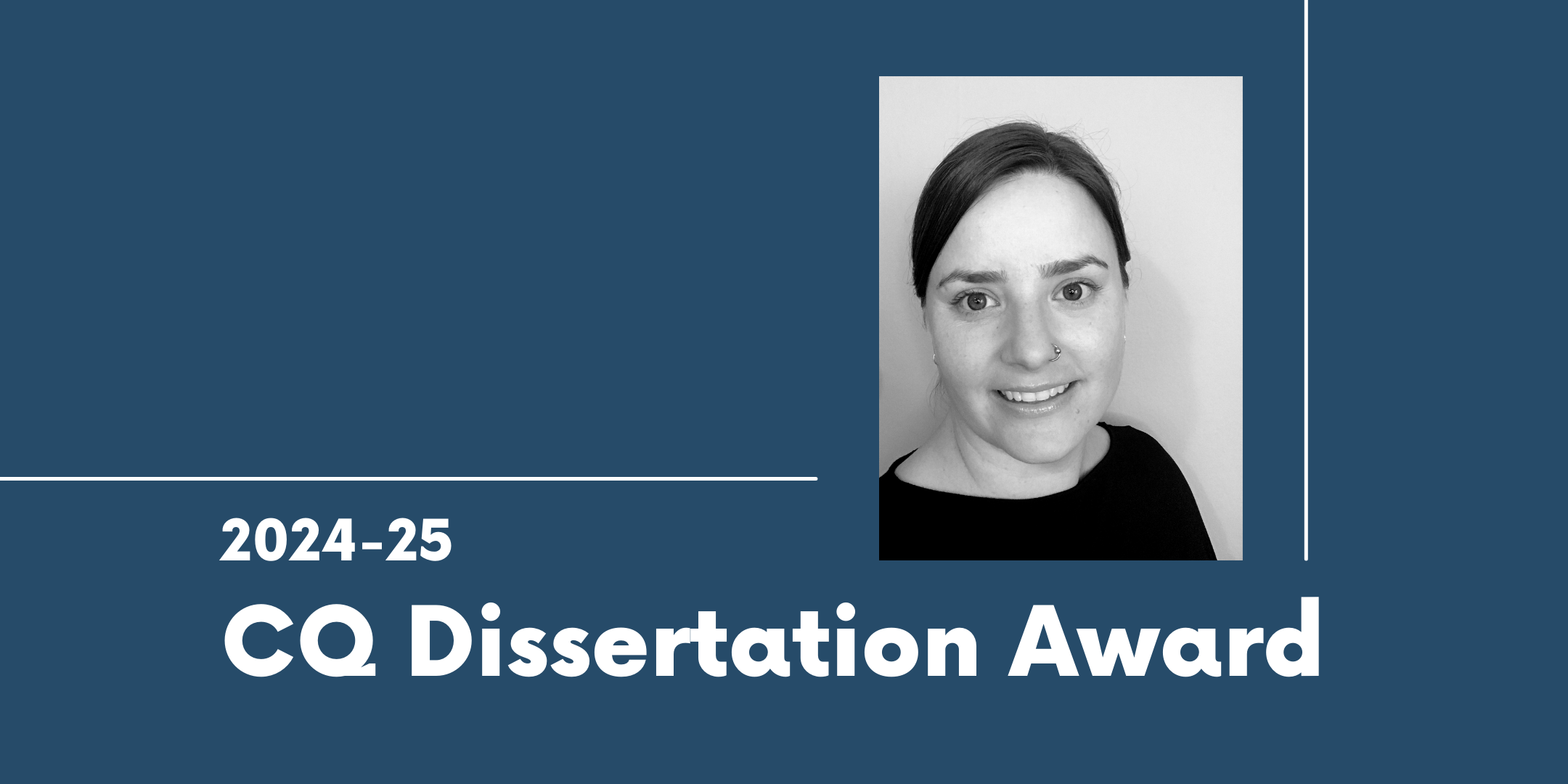We are delighted to announce that the winner of the 2024-25 Joan Eakin Award for Methodological Excellence in a Qualitative Doctoral Dissertation is Dr. Kim Collins, for her dissertation titled, Feeling Climate Change: Experiences of Ecological Emotions on Urban Farms.

The Award Committee had the following to say about Dr. Collins’ work:
Dr. Collins’ dissertation was compelling, innovative and deeply insightful in its analysis. The theoretical chapters, which were extraordinarily thoughtful and well laid out, blended effortlessly into the methodological description. In particular the notion of relationality and “human-more-than human interconnection” for Critical Public Health was very interesting. Chapter 4 was outstanding, moving beyond the rigid scientific descriptions of “methodological recipes” to incorporate reflexive jolting, pictures, and descriptions of relationships with community partners. Some of the descriptions were almost phenomenological in nature. The use of composting as an analogy for data analysis was fascinating. We were also intrigued by the use of volunteering labor on the urban farm as a form of “compensation” and the use of soundscapes as data. The author called attention to the centrality of relationships, interconnections, etc. in the theoretical chapters and embodied these concepts in the conduct of the research. This felt highly innovative and relational, challenging the conventions of a traditional doctoral project.
Dr. Collins is currently a Postdoctoral Fellow in the College of Social & Applied Human Sciences at the University of Guelph. You can find more information about her work on her website.
The honourable mention of this year’s award goes to Dr. Bernice Yanful for her thesis, Cultivating Food Sovereignty Through School Food? A Critical Discourse Analysis of Ghana’s School Feeding Programme.

The Award Committee made the following comments about her submission:
Dr. Yanful’s work offered a sophisticated rendering of complex theory that was congruent throughout all stages of her research in a particularly seamless way. The committee appreciated the author’s use of reflexivity, describing their own family experiences of migration and exposing tensions in their positionality that remained unresolved rather than glossed over as many authors do. The theoretical description of Gramsci’s hegemony and postcolonial perspectives were very well done and moved well into the methodological chapter.
Dr. Yanful is an Assistant Professor in the Department of Sociology at Toronto Metropolitan University.
Congratulations Dr. Collins and Dr. Yanful!

